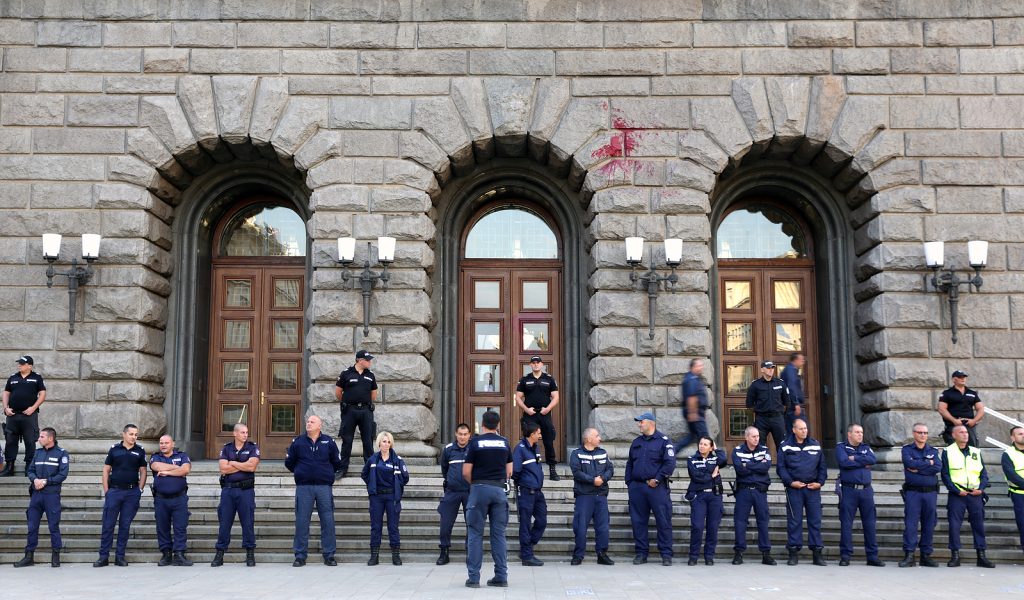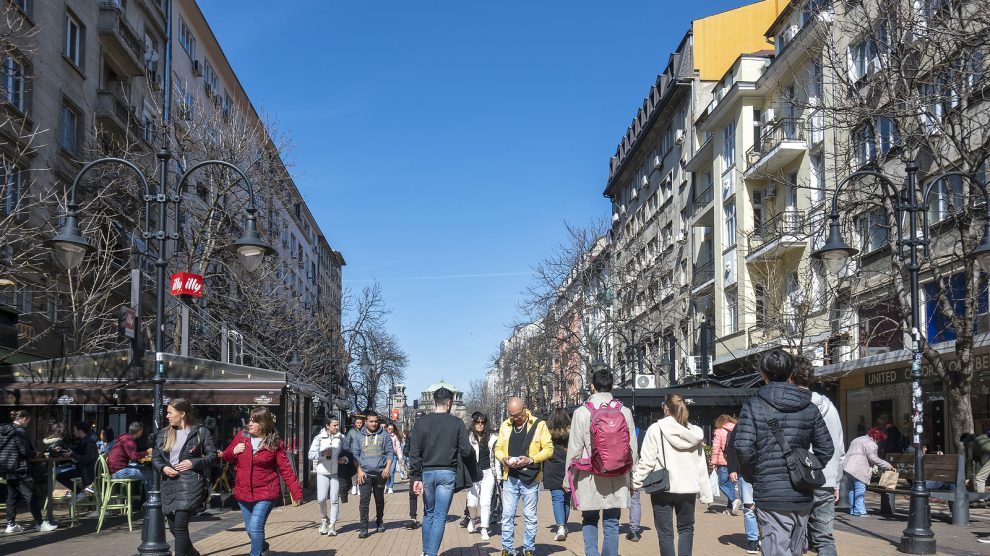Reversing negative perceptions—both local and international—about Bulgaria’s judiciary and proving that reform of the justice system is viable and sustainable will take some time.
On the surface, Bulgaria—the EU’s poorest member state, perennially struggling to combat corruption—made its first tentative steps towards long-needed judicial reform this summer.
Notably, at the end of July, a cross-party group of Bulgarian lawmakers tabled a bill to change the Constitution and to implement a number of reforms, including allowing Bulgarians to petition the Constitutional Court directly and restricting the powers of the chief prosecutor.
One MP expressed hopes that the Bulgarian parliament might be able to pass the reforms by the end of 2023, noting that some of the most important changes have been under discussion for over a decade.
- Bulgaria and Romania are finally rid of the CVM, but Schengen membership remains elusive
- Throughout CEE, software piracy remains an issue
- Understanding Bulgaria: Five essential reads
The curbs on the chief prosecutor, in particular, have been the subject of fierce debate for years; lawmakers in Sofia, Brussels, and Washington alike have cautioned that the powers granted to the Bulgarian prosecutor-general, significantly more wide-ranging than to his EU counterparts, make it very difficult to hold the powerful figure accountable for any wrongdoing.
Lawmakers’ hopes for genuine reform have risen in the wake of the June dismissal of former chief prosecutor Ivan Geshev, who had long stoked controversy and stymied reforms. While Geshev, appointed in 2019 despite the Bulgarian president’s opposition, faced years of protests and allegations of judicial overreach and other misconduct—including being accused of conspiring with former prime minister Boyko Borissov to enable the encroachment of private property onto public land and allegations that Geshev had long shielded Borissov from prosecution—he managed to cling on in post until June 2023.
Ivan Geshev’s end: The beginning of a new era?
The removal of Geshev was one of the first acts of Bulgaria’s latest government, which took office in May. The formation of the new government, an informal coalition of the country’s two largest political groups, Borissov’s center-right GERB and an anti-corruption bloc led by We Continue the Change and Democratic Bulgaria, was itself a significant development. The two parties, habitual rivals, agreed to work together in a bid to end years of political deadlock; Bulgaria has held five parliamentary elections since 2020.
The deadlock meant real reform of Bulgaria’s creaking justice system was impossible. The new government’s quick removal of Geshev—who has since started his own political party, Justice for Bulgaria, though a June survey indicated that a mere three per cent of Bulgarians would vote for him—has been cast as the beginning of genuine progress on reform. Some commentators, however, have questioned whether any government that includes GERB—a party, still led by Borissov, which many Bulgarians view as a byword for corruption—can carry out the kind of reform so badly needed to repair the country’s tarnished image.
Others have questioned whether Geshev’s replacement as chief prosecutor, Borislav Sarafov, is up to the task, pointing notably to the fact that he was previously Geshev’s deputy. Sarafov first came to prominence during what has become known in Bulgaria as the ‘Eight Dwarves’ case, named after a Sofia restaurant where alleged conspirators are said to have met, and where Sarafov and Geshev were themselves photographed, though they insist that nothing untoward occurred.
The affair led a prominent Bulgarian businessman, Iliya Zlatanov, to flee the country after exposing a scheme in which the Sofia prosecutor’s office and other official entities allegedly conspired to seize control of Izamet, the country’s biggest elevator manufacturer of which Zlatanov was the majority shareholder.
The case, which is only now being properly investigated after years of apparent neglect during Geshev’s tenure, is often put forward as an example of the prosecutor’s office both abusing its position and of its selective approach to investigations. Moreover, even Sarafov’s sudden interest in investigating and prosecuting the case has been met with scepticism in some Bulgarian media outlets, which question whether his recent rhetoric and recognition of Eight Dwarves’ victims reflect his sincere moral convictions or a desire to clean up his own reputation.
Nevertheless, with Geshev now gone, there is fresh hope that reform of the prosecutor’s office can now take place, says Maria Popova, an associate professor at the Department of Political Science at McGill University.
“Geshev’s dismissal has burst the aura of impunity and irremovability,” she tells Emerging Europe. “Hopefully, more sustainable reform of the entire institution [of prosecutor general] will follow.”
No reform, no money
That Geshev was removed at all owes much to the success of Bulgaria’s one genuinely reformist government of recent years, led by Kiril Petkov, leader of We Continue the Change, who served as prime minister from December 2021 to August 2022. The government, which featured Nadezhda Yordanova of Democratic Bulgaria as justice minister, collapsed following rows over budget spending and whether Bulgaria should lift its veto on North Macedonia beginning EU accession negotiations.
Nevertheless, during their brief period in office, Petkov and Yordanova—who had long campaigned for Geshev’s removal—succeeded in cementing reform of the justice system into Bulgaria’s Recovery and Resilience Plan (NRRP), which needs to be fulfilled in order for the country to receive its full allocation of EU Recovery and Resilience funding, worth a total of 10.7 billion euros in grants and loans. What’s more, judicial reforms remain essential to lifting the Dutch and Austrian vetoes blocking Sofia’s Schengen Area accession.
Yasen Georgiev, executive director of the Economic Policy Institute (EPI), a Bulgarian NGO working to improve the efficiency of the country’s public institutions, says that the new impetus for the reform of the judiciary is indeed largely due to Bulgaria’s commitments within the Recovery and Resilience Plan.
“The European Commission approves installments under the NRRP provided that certain milestones and targets are met on a national level by member states,” Georgiev tells Emerging Europe.
“In the case of Bulgaria, this includes reform in key sectors such as energy and the judiciary. While in energy the battle is about decarbonisation, in the justice sector it is all about improving the judicial system’s performance, which chronically suffers from shortages in its independence, transparency and accountability.”
The fear of ‘cosmetic’ changes
Bulgaria’s judicial system, composed of three tiers plus a Constitutional Court, is in theory based on the sound principles of an independent judiciary, separation of powers, and the rule of law. However, while the framework appears robust, in practice, challenges have long persisted.
“In this regard, the removal from office of the prosecutor general, the ongoing attempt to carry out constitutional reforms and changes in the judiciary appear to live up to the country’s commitments towards the European Commission,” adds Georgiev.
“However, it remains to be seen whether once completed they will in fact improve the situation with the rule-of-law in Bulgaria or they will be considered cosmetic changes only.”
Georgiev warns however that even if the judicial reforms eventually succeed, the impact on Bulgaria’s reputation will not be visible overnight.
“Changing perceptions about how the local judicial systems works and proving that reforms are sustainable will definitely take some time,” he says.
Maria Popova is cautiously optimistic, noting that two of the parties in the current coalition government (We Continue the Change and Democratic Bulgaria) have a “long-standing commitment to improving the judiciary”.
“We can be cautiously optimistic that some positive developments in this direction might follow,” she says.

Police guard the entrance to Sofia’s parliament building during an anti-corruption protest in 2020
Genuine reforms essential to bolster investment climate
For investors, both domestic and international, perception matters, and the widespread perception is that the problems with Bulgaria’s judiciary are serious and ongoing, and are cramping the country’s economic potential.
In the latest edition of Transparency International’s global Corruption Perceptions Index, for example, Bulgaria scores lower than any other EU member state except perpetual rule-of-law outlier Hungary. The European Commission’s latest rule of law report for Bulgaria, meanwhile, noted some progress on measures to improve the integrity of specific sectors of the public administration, including the police and the judiciary, yet singled out the lack of progress on improving the effectiveness of investigation and establishing a robust track-record of prosecution and final convictions in high-level cases of corruption.
As the rule of law report noted, there is widespread awareness of these issues, and the level of perceived judicial independence in Bulgaria continues to be low among both the general public and companies. Overall, just 30 per cent of the general population and 33 per cent of companies perceive the level of independence of courts and judges to be ‘fairly or very good’ in 2023.
A series of recent high-profile cases, including the Eight Dwarves affair, have not helped with the perception that justice in Bulgaria is anything but independent.
In January, for example, Geshev’s prosecutors launched an investigation into alleged illegal activities conducted by FinTech firm Nexo. After several of Nexo’s offices were raided, Nexo’s boss, Antoni Trenchev, called the accusations of money laundering and unlicensed banking activities “ludicrous”. He has since threatened to sue the Bulgarian state for damages to the firm’s reputation.
Others have privately suggested to Emerging Europe that donations made by senior Nexo staff to a staunchly anti-corruption party, believed to be Democratic Bulgaria, were the real motive behind the raids. While political motivations are always difficult to establish concretely, it is worth noting that the raids took place just days before Democratic Bulgaria was reportedly due to be asked to form part of a new government.
A threat to growth?
What is certain is that the perceived lack of an independent judiciary could soon begin to hamper Bulgaria’s economic growth. This is a shame given the country’s significant potential, particularly in the tech sector; FinTech firms, for example, attracted 20 per cent of all venture capital investment in Bulgaria in 2022.
Bulgaria’s economy is already expected to slow down substantially in 2023—to 1.5 per cent. According to the World Bank, growth may be further suppressed if Bulgaria fails to deliver on its milestones under the NRRP, resulting in a freeze or reduction of upcoming funds, and depriving the country of substantial investment resources.
According to Yesen Georgiev, although in general rule-of-law deficiencies do not directly affect foreign companies in Bulgaria, “the overall poor performance of its judiciary and the perceptions of widespread corruption continue to negatively affect Bulgaria’s image as an investment destination”.
“This necessitates that governments in the country put extra efforts into reassuring foreign investors that the judicial system delivers and the business environment remains predictable,” he adds.
Maria Popova meanwhile, while recalling that the French Ambassador to Sofia publicly complained about the quality of justice in the country and argued that it hampers foreign investment, is mindful of the fact that the Bulgarian economy is, broadly, in a healthy macroeconomic state.
“So the problem may not be as pervasive and deep-rooted as feared,” she says.
Without urgent reform of the judiciary however, the local and international perception that Bulgaria is intrinsically corrupt is unlikely to go away.
Unlike many news and information platforms, Emerging Europe is free to read, and always will be. There is no paywall here. We are independent, not affiliated with nor representing any political party or business organisation. We want the very best for emerging Europe, nothing more, nothing less. Your support will help us continue to spread the word about this amazing region.
You can contribute here. Thank you.


